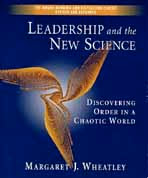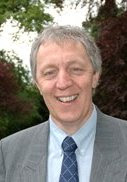- Get link
- Other Apps
Posts
Showing posts from 2007
A challenging question
- Get link
- Other Apps
Sharing my story with a homegroup from Newbury Methodist last night gave me a chance to reflect aloud on some of my recent journeyings. A member of the group asked me how I perceived Newbury Methodist after an eighteen year absence. I found it a hard question because this wasn’t a casual enquiry to which I could give a bland or trivial response, but a heartfelt concern about what they might do/have done differently. I sense the questioner was herself dissatisfied or saddened by the perceived failure to attract or keep younger people in the church. I was challenged by the question because in my ten months here I have remained uncommitted to the life of the church, partly through being away at Cliff some of the time, but also because coming from the centre of things in another church it is hard to get involved without being totally involved. Sitting on the edge of things is not normally my style, but it seemed right for the moment in order to help me reassess things and to be honest I ne
Faith at Work
- Get link
- Other Apps
Reflections on seminar in Sheffield on 26/4/07 Led by David Clark Question: How can we as church leaders encourage congregations to see their ‘work’ life as a integral part of their Christian discipleship. How can we learn from the experience of people at work in order to enrich our understanding of God as creator? For examples given by David see here Definition of work as those experiences which derive from our engagement ‘in the world’, ie apart from congregational life. Positive benefits from engaging with the world of work Discipleship as 24/7 Consciously looking for where God is already at work in the world Earthing our church-based Christianity in the ‘real’ world Releasing Christians to engage as part of the Kingdom community To actively witness to the way our faith informs our practice which leads to new ways of doing/thinking about something. Praxis leading to Poiesis: Role of Christian Leader as Community Educator Equipping the laity to think/interpret theologically To releas
Professional Talker
- Get link
- Other Apps

In preparation for an assignment on traditional and contemporary forms of Spiritual Direction I have been reading Rowan Williams’ Silence and Honey Cakes. While doing so I came across this interesting reflection which links to my last post. He describes the reticence of some of the desert fathers like Macarius to be ordained. Rowan wonders if some of their ambivalence is to do with the licence that the ordained person has to talk. Desert teachers were wary about theoretical discussions and over confidence on theological questions. Rowan comments on the danger of using speech to play power games and to communicate half baked truths. He suggests we need to develop a ruthless eye for hidden weakness by X-ray examination of our words both written and spoken to see if there are any hairline cracks in their structures.(p.68) With reference to John 6:60 he goes on to write of Jesus speaking in the context of a relationship in which truth can be uncovered for us. He talks of a language full of
Taylor talks (and writes)
- Get link
- Other Apps
I found the post on Steve Taylor’s website on 18th April very helpful today. It reminded me of a remark that Martin Atkins made at the beginning of the MEC 1 lecture last October. When being thanked for coming to give the lecture he dismissed the thanks saying that to do so was cathartic for him. At the time I didn’t understand what he meant by that remark, but thinking about it now in the light of Taylor’s blog I think I see what he means - you can only take in if you are also giving out. I have struggled with this year out of ministry, because I have not found an outlet (other than writing assignments!) for all that I am learning through it. I have preached once in 10 months, through my own choice, because I needed to stand back in order to evaluate. I have also been thinking that preaching is a non-productive environment in which to communicate. It is so easy for those who listen to disengage – a habit that I have found myself falling into during my 10 months of pew-sitting . Perha
The cactus shows signs of ‘New Life’
- Get link
- Other Apps

As you can see the cactus I planted in Olive Drane’s lecture during the Emerging Church intensive teaching week has two new baby leaves. This means the single leaf is now three! It also means that it must have developed roots. Not that I have seen them, but I know they must be there (by faith?) in order to sustain new life. What an Easter message! Thanks Olive
Dissipative Structures
- Get link
- Other Apps

I have been re-reading Margaret Wheatley’s book – Leadership and the New Science which has affirmed my thinking in the last post about authentic community. Dissipative structures is a phrased used on page 20 of the book. It was coined by Prigogine to describe the new structures that arise out of an experience of loss (dissipation). He suggests that new structures (order) can develop after experiencing loss of some nature. Wheatley writes, ‘..dissipative structures demonstrate that disorder can be a source of new order, and that growth appears from disequilibrium, not balance.’ This fits well with the idea of death and resurrection – new life from out of the old. In dissipative structures anything that disturbs the system plays a crucial role in helping it self-organise into a new form of order. (page 21)Thus things that act as a catalyst for that loss should be encouraged rather than avoided, for it is out of a profound sense of loss that the new can emerge. Organisations that are lock
Authentic community
- Get link
- Other Apps
I am currently on my 4th and last intensive teaching week at Cliff. It is the Leadership Renewal and Mission module 2 focussing on Renewal: Spirituality and Discipleship. I have just returned from two lectures given by Phil Meadows the last one being Wesleyan Approaches to Discipleship. If only we could rediscover authentic community within the life of the ministry. The bureaucracy and appraisals mentioned in my last post would be unnecessary if we were true community with each other. Accountability to one another was key to early Methodist practice. Where have we gone wrong in the practice of mutual accountability and the striving for holistic discipleship?
I believe in circuits
- Get link
- Other Apps
I believe in circuits, despite what follows! Change is already happening as we manage decline and are forced to amalgamate smaller circuits which become unviable. However, I suggest the Spirit is prompting us to be more creative in our response to decline. We have a God given opportunity to make some changes that will help develop real circuit teams. I want to affirm David Clark's message about becoming a truly servant church with the leadership empowering the laity to be the mission leaders in the kingdom community However, I believe there are some practical things we can do to help facilitate a healthier environment in which churches can flourish. This is not new thinking and in this simplistic form raises more issues than it addresses. Some of the changes are:- A dedicated (without pastoral charge of a congregation) superintendent(bishop by another name!) and paid administrator (Chief Executive if you want to use the language of business). This would mean getting rid of District
50% watershed
- Get link
- Other Apps

Martyn Atkins, principal at Cliff and president designate of the Methodist conference gave an inspiring overview of Historic Models of Church and Leadership. While reflecting on the way the bottom has and is dropping out of denominational structures he talked about the dissatisfaction experienced by many Methodist ministers. He put forward the view that maintaining the circuits as they are currently configured with their emphasis on personal chaplaincy to its members, was disaffecting many ministers. He suggested that when 50% of ministers stood up to their disbelief in this system of organising church it would set in process an unstoppable chain of events. Superintendents would be unable to chide ministers back to their roles as half of them would be among those who believe the system has to change. The recently published book of statistics about what ministers think about things like itinerancy and connected issues would suggest that we are not so far from realising this 50% level o
Reflections on emerging church week
- Get link
- Other Apps
Of all the input during the MEC2 (Emerging Church 2) week the contribution of Stuart Murray rates as my most informative. His reflective style and radical thinking makes him stimulating to listen to. Just look at this quote from his book Post Christendom ‘ This does not mean churches without leaders, or that trained and accredited women and men should not be deployed in strategic roles within and among congregations. But it means determined and sustained action to erode clericalism, redefine church leadership, empower the whole people of God for ministry and recalibrate churches as missionary communities.’ I find that a great challenge. It takes me back to my calling to be first and foremost a follower of Jesus Christ. My leadership calling has to be worked out in the light of being a follower. I am stirred by the call to servant leadership and have been inspired by David Clark's book Breaking the Mould of Christendom. The contribution from the Dranes was also stimulating. As part
Cliff College
- Get link
- Other Apps
Just finishing the intensive teaching week for the Emerging Church module. Had input from George Lings, The Dranes, Stuart Murray, Michael Moynagh as well as the resident Cliff tutors. Much food for thought. Need a bit of time to digest it all. Will post a bit about the high and low lights of the week when I get back.
